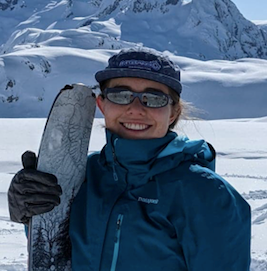Grant holders cannot hold two internal grants simultaneously. This does not include ROSA. Please note internal grants may not be used for conference travel expenses or publication costs. Additionally, all changes deviating 10% from the budget require prior approval. If awarded, applicants are not eligible to apply in consecutive grant terms.
SSHRC Explore Grants | Overview
|
|
|---|---|
| Amount | Up to $7000 per project |
| Duration | 1-year projects. All funds must be spent by March 31, 2026 |
| Eligibility | Principal Investigator (or Applicant) must be Type B, regular faculty |
| Intake Dates | |
| Deadline | Applications currently not being accepted. Competition will open Spring 2026. |
| Results | Mid June |
Call for Proposals 2025-2026
The SSHRC Explore grant is made possible by block funding from the Social Sciences and Humanities Research Council (SSHRC) to the University of the Fraser Valley. Explore grants are designed to support small-scale Social Science and Humanities research projects with modest funding requirements for researchers at any stage in their careers. Funds are provided by SSHRC and adjudicated/distributed by the University of the Fraser Valley. Because of this, they are required to align with SSHRC's three main pillars (Talent, Insight, and Connection), and have subject matter that is eligible to be funded by SSHRC.
Research should be original and relevant to the academic field, as demonstrated in the proposal. It should provide meaningful experiences for students/research trainees.
| Value | Projects will be funded to a maximum of $7000. Applicants please request only what is needed to complete the project so that there are more funds available to fund your colleagues' projects. |
| Duration: | All project funds spent by March 31, 2026 |
| Application Deadline: | Applications currently not being accepted. |
| Results Announced: | Mid June |
Eligibility
- Applications may be submitted by an individual researcher or a team of researchers.
- The Principle Investigator (or applicant) must be Type B, regular faculty.
- Applicant may only hold one Explore Grant per year.
- Funds are not intended to complete or supplement tri-council or other currently-funded projects (internal or externally funded).
Evaluation and Adjudication
A committee of UFV researchers will adjudicate all applications. The committee will be made up of a broad range of researchers; however, it will be incumbent on the applicant to ensure the proposal is presented in language that an educated generalist audience can evaluate.
Evaluation Criteria and Scoring
Your application will be evaluated based upon the following criteria and scoring scheme:
Challenge – the originality of the proposed research probability of making a significant contribution to knowledge (40%)
- Originality, significance and expected contribution to knowledge
- Appropriateness of the literature review/context provided (eg. Enough context has been provided academically and otherwise, for the reviewer to understand the importance of the proposed research)
- Appropriateness of the theoretical framework
- Appropriateness of the methods/approach
- Quality of training and mentoring to be provided to students, emerging scholars and other highly qualified personnel, and opportunities for them to contribute
- Potential for project results to have impact within and/or beyond the social sciences and humanities
Feasibility – the design of the project, and its probability of successful completion (30%)
- Appropriateness of the proposed timeline, and probability that the objectives will be met
- Expertise of the applicant or team in relation to the proposed research
- Appropriateness of the requested budget, justification of proposed costs, and, where applicable, other cash and/or in-kind contributions
- Quality and appropriateness of the knowledge mobilization plans, including effective dissemination, exchange, and engagement with stakeholders within and/or beyond the research community
Capability– the experience/expertise of the applicant (and co-applicants) and their knowledge to complete the proposed research (30%)
- Quality, quantity, and significance of past experience and published and/or creative outputs of the applicant and any co-applicants, relative to their roles in the project and to stage of their career
- Evidence of past knowledge mobilization activities (eg. Films, performances, commissioned reports, knowledge syntheses, experience in collaboration / other interactions with stakeholders, contributions to public debate and media), and of impacts on professional practice, social services, and policies, etc.
- Quality and quantity of past contributions to the development of training and mentoring of students, postdoctoral researchers, and other highly qualified personnel
The adjudication committee will be asked to score each proposal for each of the three criteria above. Applications must receive a score of at least 50% in each criterion in order to be considered for funding. Once scored, applications will be ranked and funded until funding is exhausted.
Grant recipients must acknowledge SSHRC support for their research or research-related activities.
Questions?
For assistance with your SSHRC Explore application, please contact Ash Lalani -ash.lalani@ufv.ca
For assistance with Romeo, please contact rgs@ufv.ca

